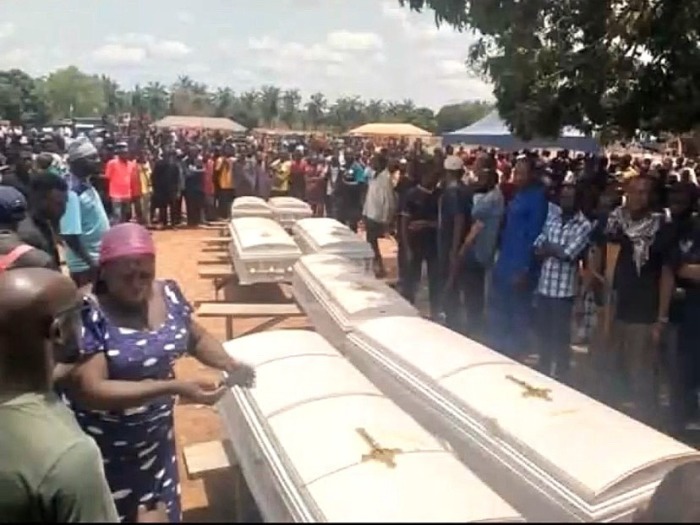
Hundreds of displaced Nigerians blocked a major highway this week to protest government inaction after the mass killing of more than 200 Christians in a massacre last month. The demonstrators, mostly women and children, demanded food and security at a camp near Makurdi in central Nigeria.
Chanting “We want to go back home; no security, no food,” the protesters used tree branches to barricade the Makurdi–Lafia–Abuja expressway, halting traffic at the junction near the Maga IDPs Camp in Mbayongo, Truth Nigeria reported.
The demonstration came one day after Nigeria’s First Lady, Oluremi Tinubu, visited Benue State and announced a donation of 1 billion naira ($653,000) for the upkeep of internally displaced persons in the region.
The massacre that occurred June 13–14 in the Yelewata community of Guma County forced thousands from their homes and left over 200 Christian villagers dead. The attack was carried out by armed men identified by local leaders as Fulani militants. The displaced are now living in makeshift camps across Benue State with limited access to food, medicine and security.
“Our people have stopped going to distant farms for fear of being ambushed and slashed to death by the terrorists,” Thomas Ukumba, a community elder from Yelewata, was quoted as saying. “Yet again, the terrorists are coming close to our residents, but there’s been no response from the military or police. We are not safe.”
A protester, identified as Rebecca Awuse, said she was tired of life in the camp and wants to go back home, according to Vanguard.
Eight deaths have been reported in two IDP camps in Makurdi in recent weeks, with victims ranging from young adults to children. Camp leaders cited illness and a lack of medical supplies as the cause.
Abraham Taa, chairman of the Ichwa IDP Camp, identified the deceased as Mngusornon Terhile, Juliana Iorkyaa, Deoron Kwaghbee and Bemshima Nyajo. At the Abagana IDP Camp, Chairman Festus Azende confirmed the deaths of four others, including his daughter, Immaculate Dooshima Azende, as well as Kazan Ver, Aboi Aondowase and Unaha Joy.
Taa also raised alarm over deteriorating infrastructure. The camp is no longer secured due to fallen perimeter fences at different points, he said.
A 1-year-old boy named Terseer Aondowase David was reportedly kidnapped from the Ichwa IDP Camp and hasn’t been found. No suspects have been arrested.
While protesters accused both state and federal authorities of abandonment, the Benue State Emergency Management Agency denied neglect. Its spokesperson, Tema Ager, claimed the protest was politically motivated.
Local leaders from the Yelewata community remain critical of the security forces. Damian Ugbir, a youth leader from the area, described an incident where Fulani militants, disguised as herdsmen, entered a school compound. It was reported to both the police and the military. The police sent only two officers who exchanged gunfire with the terrorists. The police personnel retreated, saying they couldn’t match the firepower of the terrorists. The military failed to respond.
The Nigerian federal government had earlier stated that the June massacre would be a turning point for security operations in the region. However, residents say the violence has continued unabated.
The Fulani people group numbers in the millions across Nigeria and the Sahel region of Africa and consists of hundreds of clans and various lineages. While many don’t hold extremist views, others adhere to radical ideologies similar to the Islamic State or Boko Haram, according to the United Kingdom’s All-Party Parliamentary Group for International Freedom or Belief.
Church leaders have voiced concern that a “plan is underway to seize land and ethnically cleanse the region of its Christian presence,” according to Aid to the Church in Need.
In Nigeria, nearly 10,000 Christians were killed by Islamic extremists between November 2022 and November 2024, according to a January report from the persecution watchdog group Global Christian Relief.


















